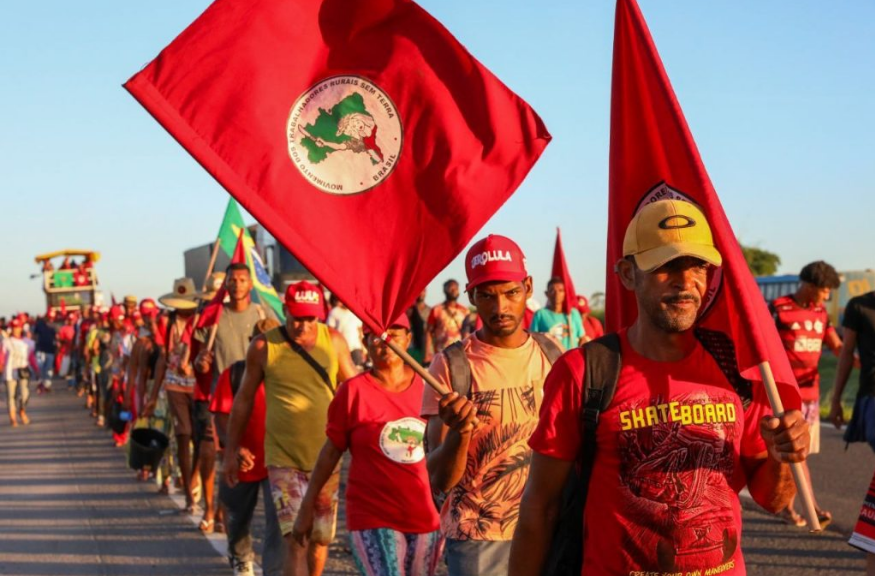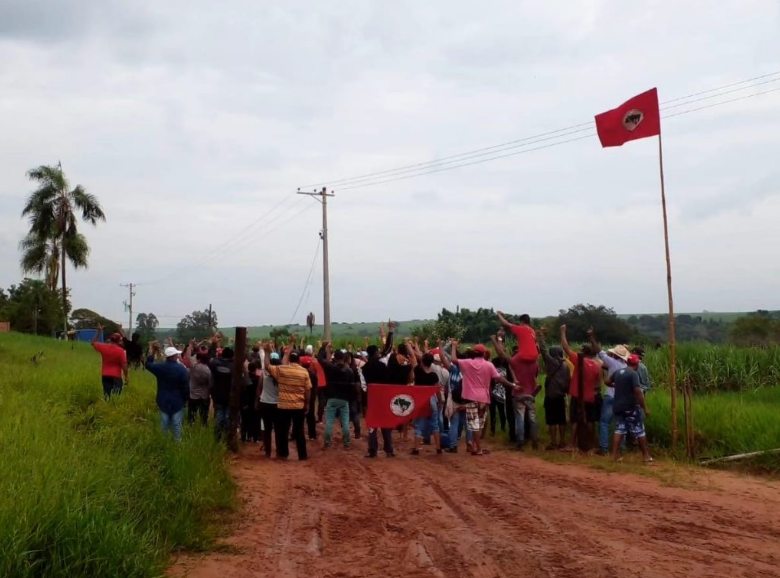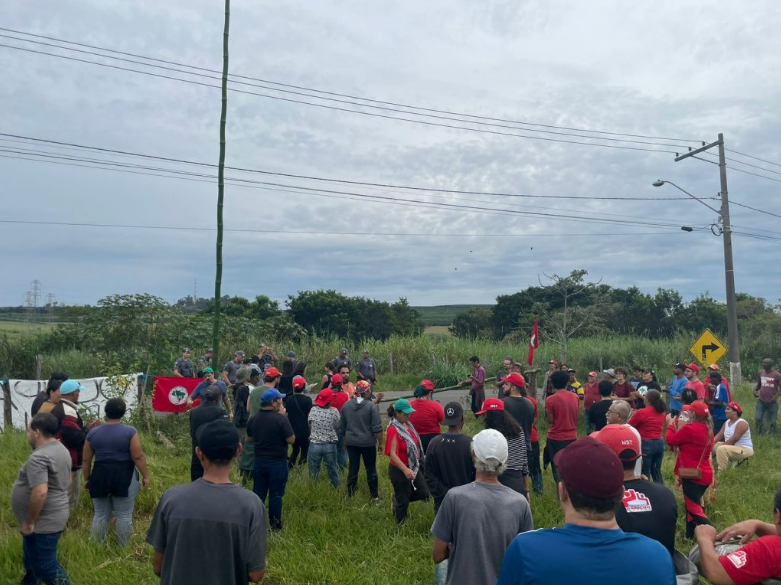
The National Day of Struggles in Defense of Agrarian Reform began on Monday (15) with the slogan “Occupy for Brazil to Feed”. The Day will last until Friday 19th, with a series of actions in all regions of the country to demand the realization of Agrarian Reform, in memory of the 28th anniversary of the deaths of the martyrs of Eldorado do Carajás and celebrating 40 years of MST struggles.
To date, the Jornada has held 30 different actions in 14 states across the country, mobilizing more than 20,000 landless families. Of this total, the MST has carried out 24 land occupations in 11 states.
Land occupations and the setting up of new camps took place in Sergipe, Pernambuco, São Paulo, Goiás, Rio Grande do Norte, Paraná, Pará, the Federal District, Ceará, Rio de Janeiro and Bahia. There were also other activities, such as the construction of the Camp in Defence of Agrarian Reform in Maceió (AL), a People’s Assembly in Maranhão, an occupation of the National Institute for Colonization and Agrarian Reform (Incra) in Pernambuco, a demonstration in Sergipe and a Public Hearing at Incra in Santa Catarina, the continuation of the State March in Defense of Agrarian Reform in Bahia, and the Landless Youth Pedagogical Camp at Curva do “S” in Eldorado do Carajás (PA).
The land occupations emphasize the importance of Agrarian Reform as an urgent and necessary alternative for the production of healthy food in Brazil, with a focus on eradicating hunger in the countryside and in the city, guaranteeing the country’s development in the agrarian, social, economic and political context. It is worth noting that we are at a time when the budget for obtaining land and basic rights in the countryside, such as infrastructure, credit for production, housing, among others, has been the lowest for two consecutive years in the last 20 years.
In a letter to the Brazilian people, released on Monday (15), the Landless Movement reaffirms the legitimate right to fight for access to land and demands that the social function of land be respected.
“We fight because 105,000 families are camped out and we demand that the federal government comply with article 184 of the Federal Constitution, expropriate unproductive estates and democratize access to land, settling all those who want to work and produce food for the people.” The document continues: “We are fighting for Agrarian Reform so that the land fulfills its social function: to produce healthy food for the Brazilian people and to take care of nature.”

People’s Land
The occupations took place on the same day that the Federal Government launched the Terra da Gente Program. The initiative is part of a new strategy to expand and speed up Agrarian Reform. The programme was announced by the President of the Republic, Luiz Inácio Lula da Silva, the Minister of Agrarian Development and Family Agriculture, Paulo Teixeira, and the President of the National Institute for Colonization and Agrarian Reform (INCRA), César Aldrighi, at a ceremony.
According to the program’s strategy, it is estimated that 295,000 farming families will benefit throughout the country by 2026.
Ceres Hadich, from the National Coordination of the MST, said that the announcement of the massive resumption of the creation of Settlement Projects in Brazil through the program, “is in line with the two main priorities of the Lula government and the fulfillment of the social function of land, which are the fight against hunger and care for the environment”.
In this sense, Hadich draws attention to a set of demands that are repressed, such as water, electricity, roads, schools, health centers and technical assistance. “These demands are basic rights that it is up to the state to resolve. It is also essential that the National Supply Company, Conab, is strengthened and plays a leading role in the resumption of supply policies, stock formation and price regulation, and that its budget is restored so that all Brazilian people have access to food, at a fair price and with quality.”
Conflict
In São Paulo, after the occupation of the Mariana farm, in the municipality of Campinas, the police force repressed the families and evicted the occupation, with indiscriminate use of repressive force. The families made their way to the headquarters of the municipal government to seek a negotiation on the situation of the encamped families. At this point, the Municipal Guard blocked the entrance to the Municipal Palace, preventing people from entering or leaving.
Also in São Paulo, in the municipality of Agudos, a military police helicopter flew over the newly created encampment to create terror and intimidate the landless families there.

In Rio de Janeiro, on Monday morning (15), more than ten vehicles from the 8th Military Police Battalion surrounded the Josué de Castro settlement in Campos dos Goytacazes. The police intimidated the settled families with the use of drones and signal jammers. The settlement was created by INCRA in 2007 and has already been fully regularized.
There was also conflict in Goiás, with truculent action by the Military Police, and in the Federal District and surrounding areas.